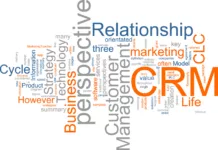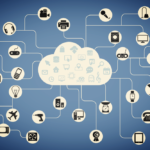All businesses rely on software solutions. Even if your corporation has somehow survived without using some kind of customer management software, word processors, email, and payroll solutions are software, too. Everyone uses these. The following outlines some of the software solutions that are available to your business, along with the purposes and uses of each. There are many types of corporate software solutions, and what’s right for your business is going to depend on the size of your company, its needs, and its function.
Computerized Maintenance Management Solution/Enterprise Asset Management
CMMS (sometimes called EAM) organizes company data. It prioritizes work orders, inventory, labor needs, and more. As its name suggests, it maintains and manages your company’s tasks. It’s responsible for asset management, notifying you of new work orders, document storage, and predictive maintenance. Highly rated software for maintenance management isn’t hard to come by, but the best software empowers its users to make informed decisions and automatically prioritizes the most important tasks.
Human Resource Management
Most organizations rely on high-quality HRM software. Cloud and web-based technology have changed the way this department conducts business. Really, it’s revolutionized how HR communicates, handles benefits, and hires new employees. So much of what the department does is fully automated, which allows HR more time to brainstorm processes, improve the recruitment process, and help current employees understand their roles and benefits.
Communications Software Systems
Communication is your corporation’s lifeblood. Internally, your employees and their supervisors are communicating to ensure your products and services are timely and quality made. Externally, it’s communication that connects you with customers. Cloud phone systems, messaging programs (including video chat and web conferencing), and email are all examples of communications software.
Business Intelligence Software
Business intelligence (BI) software manages your data. It’s a uniquely intuitive software that collects data from your company’s spreadsheets, information systems, reports, and more. It uses data mining tools to collect and organize data that’s stored throughout your business, including in your data warehouses. BI software helps ensure your business is compliant with regulatory standards, as well as organizes, retrieves, analyzes, and reports on your intelligence data. Its most important asset, however, is providing insights through reports and visualizations that you can use in your day-to-day decision making. The type of BI your business needs depends on if you prefer on-premise or cloud implementation, as well as the size and financial value of your corporation.
Customer Relationship Management
All corporations should employ a customer relationship management (CRM) solution to manage their customers and generate leads. The goal of a CRM is to cohesively organize your customer base and your potential leads. It should help your company improve its customer relationships, including retaining current customers and generating leads for new customers. Like all software, the type of CRM you choose is dependent on your size, budget, and needs. You could choose on-site software or cloud solutions capable of connecting field sales agents with the company’s database of customers.
Mobile Device Remote Access
If you have field representatives, it’s likely they’re already using company phones to conduct business. Your off-site employees shouldn’t transmit business information from their personal phones because they aren’t protected. You want company phones equipped with virus and malware protection, and databases that are fully protected from hackers. Mobile device remote access software allows field agents to access their computer’s files and folders from mobile devices. Those files can be traded internally or externally with customers and potential clients.
Overall, your corporation isn’t limited when it comes to software solutions. Your department benefits from automation, and by streamlining job functions, your employees can better manage their time, using it to help grow your profits. And honestly, when was the last time you complained about growing profits?








